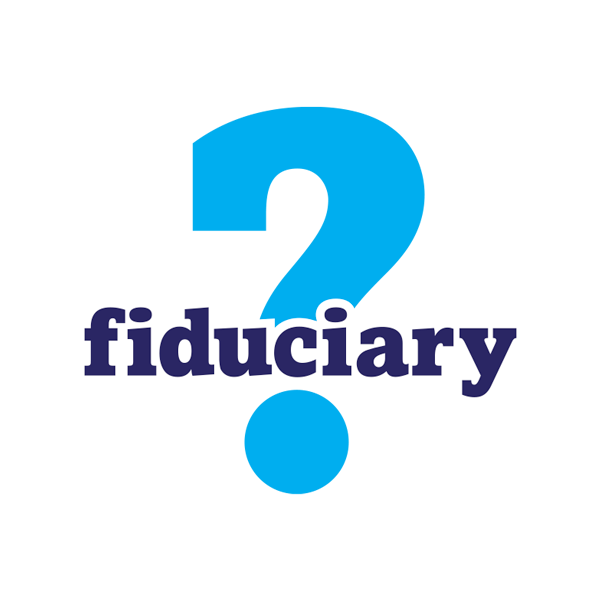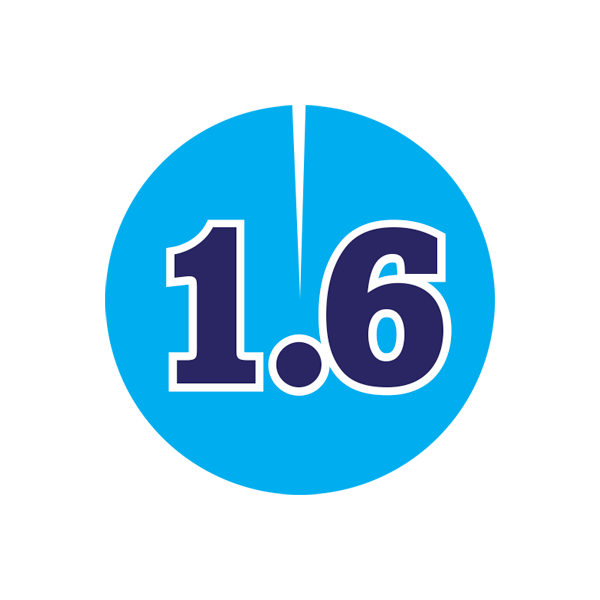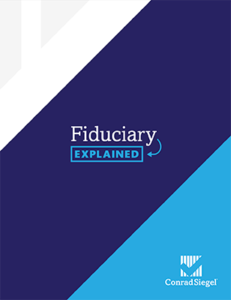Conrad Siegel: the Friendly Fiduciary
Let’s learn about the term, “fiduciary” and why it’s important
We’ve all heard the word thrown around by financial advisors. But the term “fiduciary” is an important one to us. It defines our ethical responsibilities to our clients to do what’s in their best interest at all times.
Not all advisors are fiduciaries. Do you know how to tell the difference? You might be surprised!
What’s in a word?
The following contains our unique definition of the word “fiduciary” as defined under the Investment Advisers Act of 1940. We’ve spent a lot of time seeking a shared understanding of the word and what it means for our unique style of client service. We hope this page gives you the tools to understand what a fiduciary is and, more importantly, what a fiduciary can do for you.

What does being a “fiduciary” actually mean?
A fiduciary, by definition, is an unbiased, trusted financial advisor committed to knowing and empowering you to make financial decisions in your best interest. At Conrad Siegel, all of our investment consultants are full-time fiduciaries. Our firm was built around this standard.

Doctors and fiduciaries aren’t that different
When you go to your doctor, you’re entrusting them with your future. Any time you’re trusting someone with something so significant, you want to make sure you understand their motivations. You would expect your doctor to provide a diagnosis or counsel based on what is in your best interest. Likewise, you should expect the same of your financial advisor.

Only *1.6% of financial advisors are true fiduciaries!
Only about 5,000 of 310,000 advisors are actually full-time fiduciaries (including Conrad Siegel). Yet *53% of people mistakenly assume their advisor is legally required to act in their best interest at all times. Remember that some advisors may only act as a fiduciary on a part-time basis.
*Source: Robbins, Tony. (2017). Unshakeable. Simon and Shuster.

Everything you need to know about fiduciaries!
Download the eBook:
Find out more about what a fiduciary really is and how it impacts you when working with an advisor. Our eBook will give you the tools you need to understand the fiduciary model and its importance when working with someone that is managing investments.
Hear from our team of friendly fiduciaries!
What to look for in an advisor
It seems like a lot of firms call themselves “fiduciaries” but the term has been abused by many as legislation has come out that has caused confusion for people. We believe it has become more difficult than ever to find an independent, qualified financial advisor who will work in your best interest at all times.

CERTIFIED FINANCIAL PLANNER™ designation
Those with this designation are held to the fiduciary standard. This designation applies to the individual adviser rather than the firm. For example, every single one of Conrad Siegel’s investment consultants is a CERTIFIED FINANCIAL PLANNER™.

How the firm is paid
We say it all the time but, as a fee-for-service firm, we’re paid solely for our services, nothing else. No commissions or revenue-sharing, no hidden fees or costs.

A Registered Investment Advisor (RIA)
RIAs have a fiduciary duty to their clients, which means they are legally obligated to provide investment advice that always acts in their clients’ best interests.
